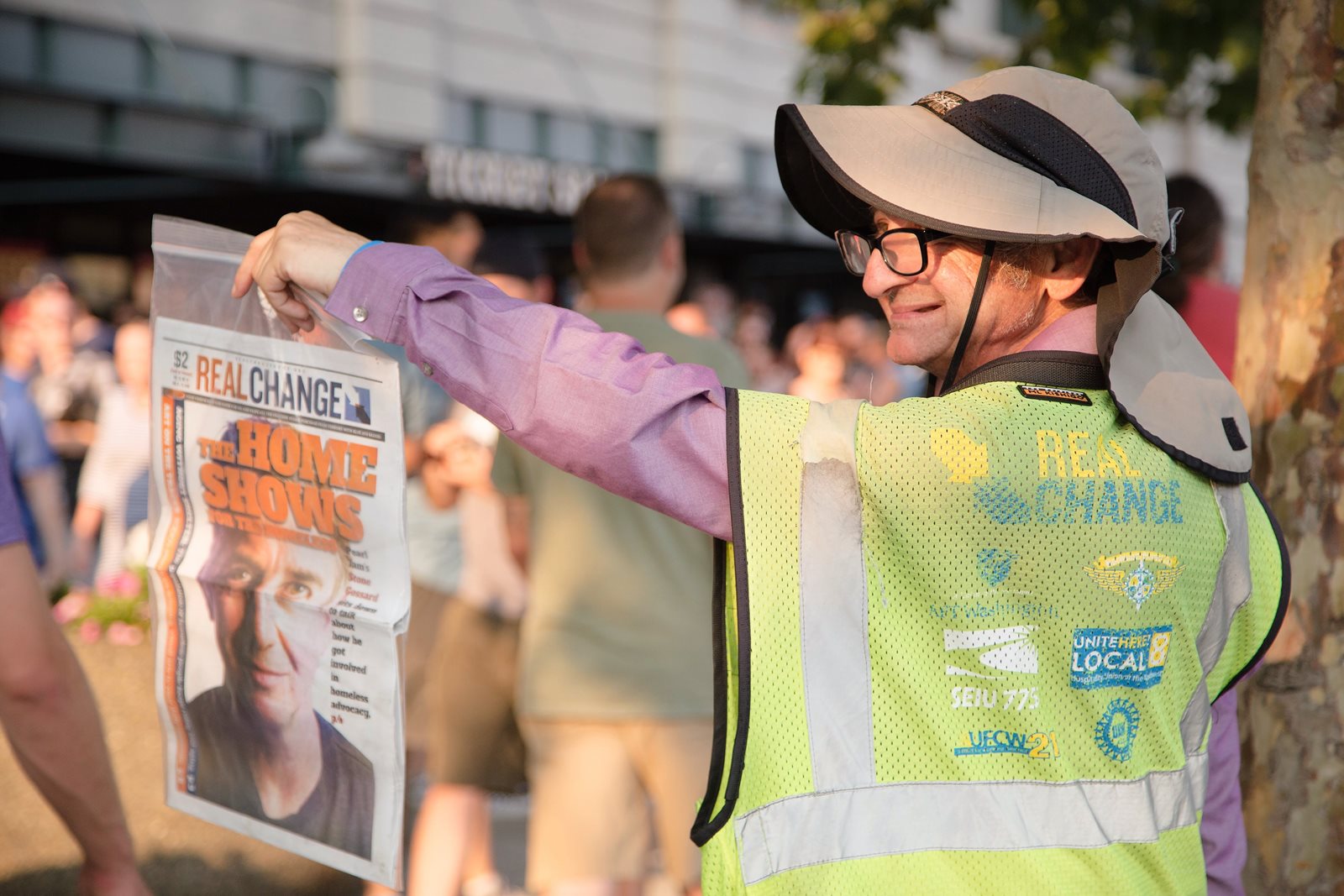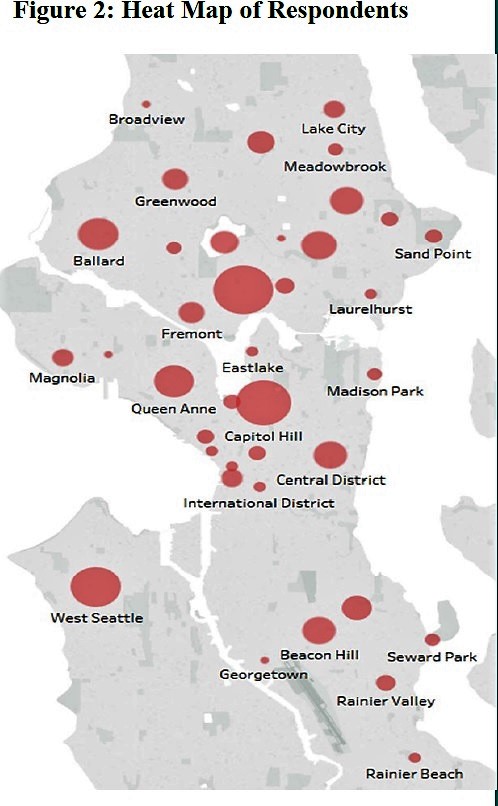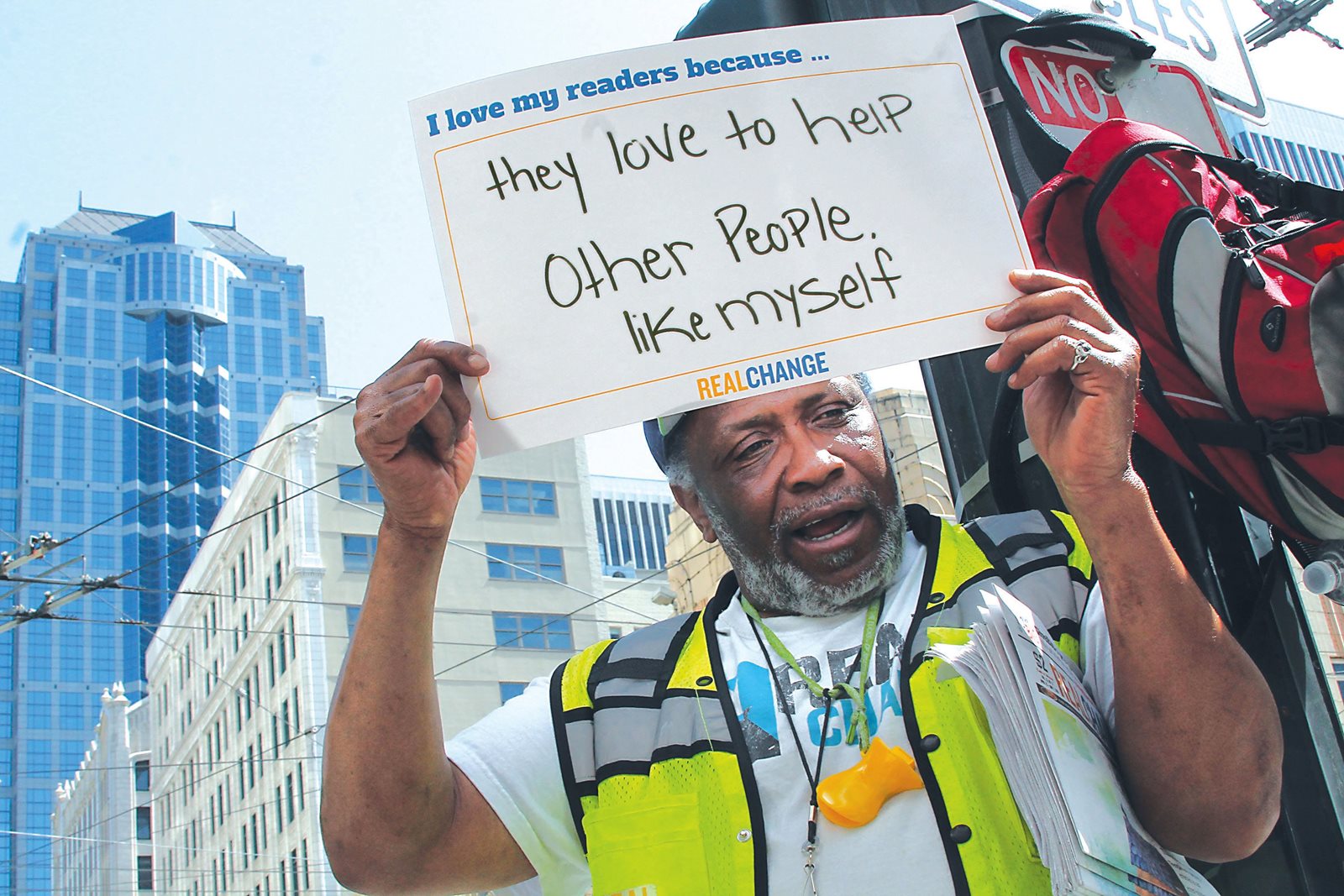
By Douglas Esser
Real Change is a newspaper sold by some homeless or low-income people on the streets of Seattle to earn money. They buy a copy for 60 cents, sell it for $2 and keep $1.40. Or they “eat” the inventory that doesn’t sell. So, marketing is crucial for the nonprofit publication and its vendors.
Recently, Real Change conducted a survey of its customers and asked the University of Washington Bothell to help make sense of it. Working with faculty, students analyzed the data and presented results. Real Change is incorporating the findings in its strategic plan, said Tim Harris, the founding director.
“It really helps us to increase the professionalism and credibility of our survey when we have people who actually know something about statistics,” Harris said with a laugh.

The experience also gave students real world experience with impact.
“One of the hottest fields in the world right now is data science,” said Robin Angotti, an associate professor of mathematics in the School of Science, Technology, Engineering & Mathematics. “I believe in doing data science and visual representations and statistical analysis as early as possible to get people using it, so they’ll be competent.”
Working from spreadsheets over the summer, four of Angotti’s students developed interactive digital displays using Tableau software that went beyond bar graphs and pie charts. Real Change appreciated how the presentation honed in on the demographics and motivation for buyers in different Seattle neighborhoods, Harris said.
“What the students brought was an unprecedented ability to parse the survey data and really go deeply into it and understand what it’s telling us,” Harris said. “It’s really impressive. I didn’t know this existed. They kind of blew our minds.”

Angotti calls her student researchers data buddies. “They help you figure out what your data say,” she said. “Everybody wants a data buddy now.”
Johnny Arenas (Marketing and Finance ’19) enjoyed the experience and was happy with the end product.
“With these types of projects, we are given the opportunity to use what we learn in the classroom and then apply it in the real world,” Arenas said. “I’d like to continue doing data analysis and providing insights into companies in the future. I’ve already considered looking into data analytics as a career.”
Bethany Leach (Electrical Engineering ’19) once dreamed of a job looking at Major League Baseball numbers and telling teams in which players to invest, but Leach didn’t imagine it was a real career option.
“I didn’t think much about data science until I took Robin’s stats class last spring, and I realized how much I loved statistics,” Leach said. “I very much see myself being a data engineer.”
Jacob Anderson (Mathematics ’18) hopes to work professionally in data science and said hands-on experience can’t be beat.
“I learned as much working with real material in the first few weeks as I did in most of my core classes that take 10 to 12 weeks,” Anderson said.
Charles Collins, an assistant professor in the School of Interdisciplinary Arts & Sciences, started working with Real Change in 2015 on an earlier reader survey. Since then, the relationship has grown, and he brought in Angotti and her students for the latest survey.
Acting on the findings, Harris said Real Change will do more to promote a mobile payment option and boost the paper more on social media to appeal to younger readers.
A majority of the survey takers thought the paper was written by homeless people. But while vendors produce an occasional op-ed or profile story, the paper has a staff of four professional journalists, Harris said. “We’ve come to the conclusion that the quality of the paper is a strength we need to build on with our marketing,” he said.
Harris is already looking ahead to improved methodology in the next survey, valuing the relationship with UW Bothell.
“They put a lot of time into it, gave a high-quality presentation and made it clear that they were there for us if we needed more analysis of the data,” Harris said. “We feel really supported by the UW Bothell students and professors who worked on this. It’s clear to us it was not just another homework assignment. It was something they have passion about and worked really hard to get it right and be of service.”
Collins hopes to continue building a culture where students have impact.
“In terms of our campus, the partnership is just amazing, and having the opportunity to work with organizations like Real Change and have a group like Robin’s students to take off on this is just incredible,” Collins said.
Angotti said the community-based learning and research with Real Change is characteristic of UW Bothell.
“If I can combine teaching my students with our job as a public university to have an impact on the public and help the homeless, that’s a win for the students, a win for the university and a win for the community,” Angotti said.




